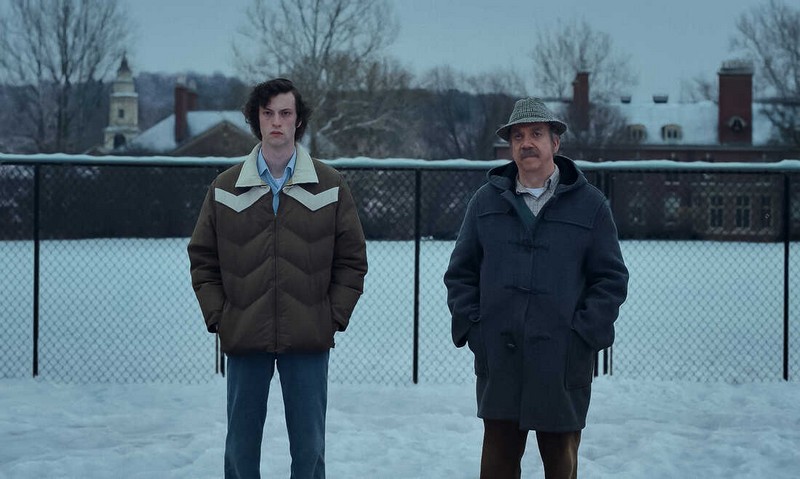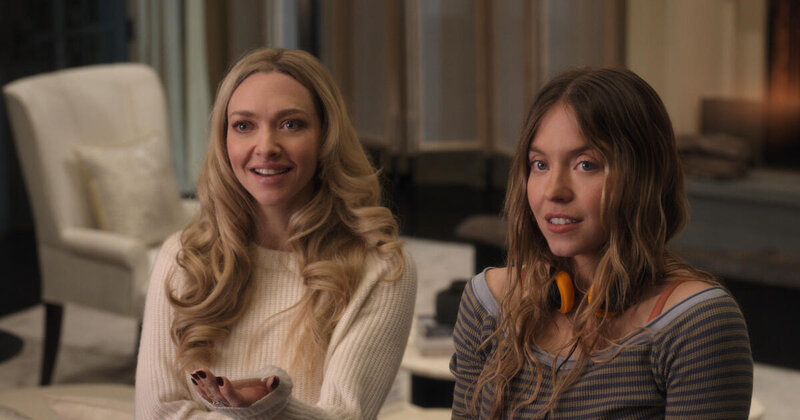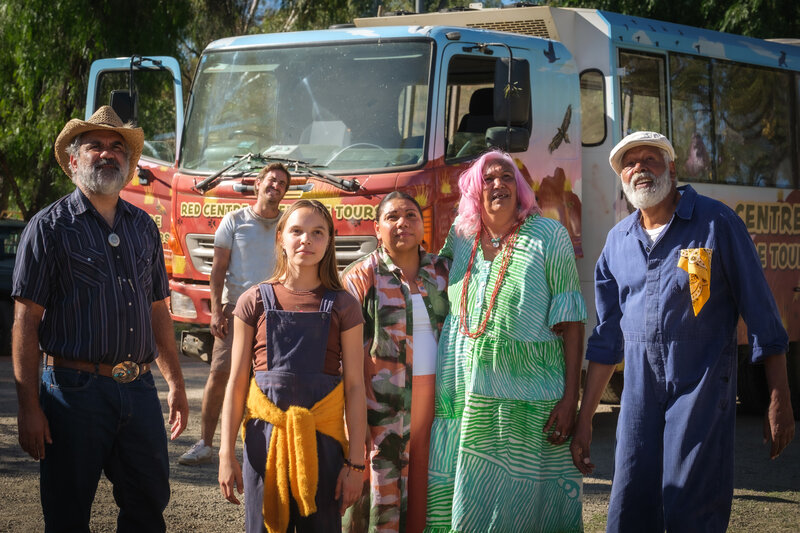Alexander Payne doesn’t make movies all that regularly – only five full features between 2000 and 2020. But when he does, everyone takes notice. And while his previous film, Downsizing (2017) might have been a little underwhelming, there’s nothing disappointing about The Holdovers.
Payne’s best-known film is probably Sideways (2004), and here he teams with Paul Giamatti once more. It’s no coincidence that this film shares a tonal resonance with that earlier film, as well as some callbacks to it. And like Sideways, the combination of Payne and Giamatti works brilliantly. Both films are compelling narratively, and unexpectedly warm. On this occasion, Payne works from a script by experienced TV writer and producer David Hemingson – and what a script it is. Hemingson and Payne constantly subvert tropes and upend preconceptions. So while this is part of the “curmudgeon” sub-genre, it definitely isn’t typical of it.

The film takes place over the course of 8 days – between Christmas Eve 1970 and New Year’s Day 1971. The prestigious Barton Academy boarding school in Massachusetts observes a winter break over that period and most of the students head home for the holidays. But there are always a few holdovers – kids whose circumstances mean they have to stay at school over the break. This year, one of those kids is Angus Tully (Dominic Sessa). Angus was fully expecting to go home, only to have his mother cancel so she can go away with her new husband. The fact students remain over the break means the school has to look after them. Unpopular ancient history teacher Paul Hunham (Giamatti) has drawn the short straw. He’s joined by the school chef Mary Lamb (Da’Vine Joy Randolph) and maintenance worker Danny (Naheem Garcia). But a twist of fate sees the other few kids leave campus; meaning Angus, Paul, Mary and Danny are left to navigate the season by themselves. It doesn’t take long for conflict to spark between the rebellious Angus and the conservative Paul. But over the coming days, choices will be made that will change lives.
Like most of Payne’s films, the idea of family and what it means to be part of one features strongly in The Holdovers. Hemingson’s script also delves into some big ideas, including privilege, racism and loss. And while you could say the same things about many recent films, few have the deftness and smarts that this one delivers – not to mention its understated but still pointed humour. The script takes several unexpected turns, culminating in a resonant, satisfying ending. This isn’t a film of pat characters and tired scenarios. Everyone is damaged – some more than others – and no one is particularly likeable. But Payne takes the audience on a journey in which even they find something in themselves or in others to hold on to.
Cinematographer Eigil Bryld (No Hard Feelings) does wonders in recreating the look and feel of the 1970s on film. Although the film was shot on digital, the hallmarks of the period were added in post; although you could be forgiven for thinking the it really was made in the 1970s (even down to the typeface in the opening credits). Mark Orton (Leave No Trace) provides a generally upbeat score, complemented by a soundtrack heavy on seasonal music, but including choices as diverse as Beethoven and Damien Jurado.
Paul Giamatti is already in the awards season conversation for his role in this film – and if there’s any justice in the world, an Oscar nom must surely follow. He gives a performance of rare subtlety, finding the raw vulnerability under the character’s mantle of gruffness and sarcasm. Dominic Sessa, in his first film role, makes every post a winner as Angus. Da’Vine Joy Randolph (The Lost City) is better known for her comedy work, but handles the dramatic role of Mary with aplomb. Carrie Preston (Space Oddity) injects an infectious enthusiasm into her role as Miss Crane, one of the teachers at the school; while Andrew Garman (Dead Ringers TV series) impresses in a small but important role as the school principal.
It’s a bit of a shame The Holdovers wasn’t released here in Australia before Christmas (as it was in the US) but the fact it’s a little “out of season” shouldn’t detract in the least. This is a terrific film from Payne and a return to his very best work. Make sure you see it.
David Edwards
Other reviews you might enjoy:

David Edwards is the former editor of The Blurb and a contributor on film and television





